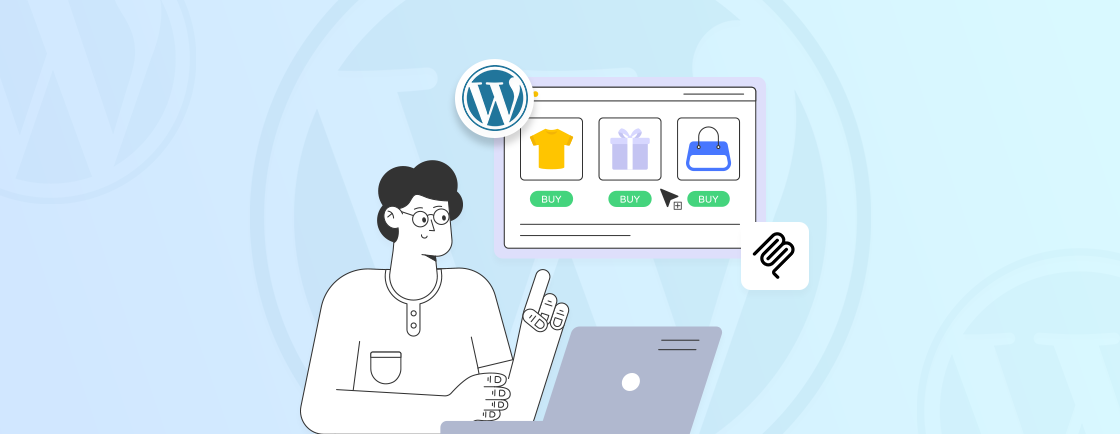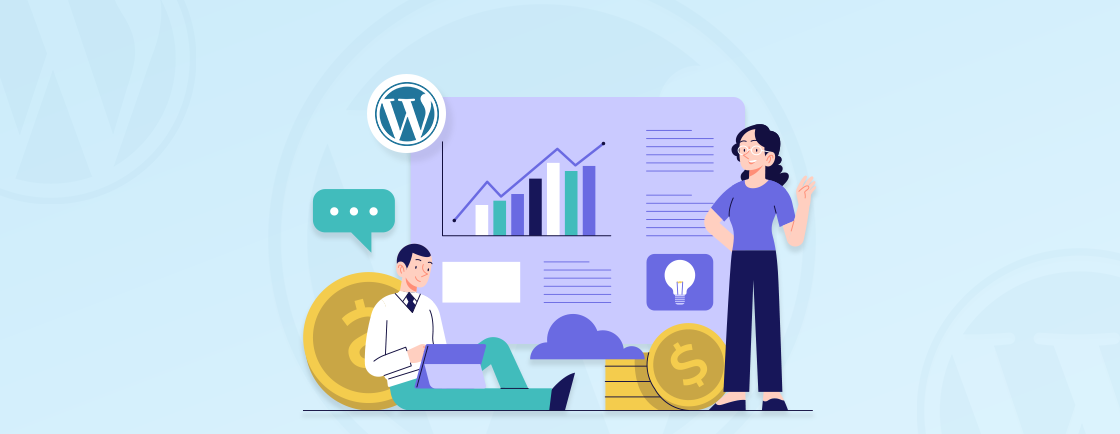Table of Contents
One of the frequent queries we get is how to migrate from Blogger to WordPress without losing SEO. Although Blogger is one of the best, most popular blogging platforms, SEO experts consider WordPress as a better alternative thanks to its extensive customization capabilities.
Now, almost everyone incorporates the SEO strategies when creating a blog on Blogger. And they would want to retain the rankings while integrating the best features. So how do the WordPress experts perform the migration from Blogger to WordPress without an impact on the SEO?
That’s what we’ll cover in this blog. But first, let’s check out the importance of SEO.
What is the Importance of SEO?
When switching from Blogger to WordPress, it’s key to grasp how SEO works and its influence on your website’s efficiency. By executing effectual SEO strategies, you can keep or even improve your website’s search engine rankings during the transition.
But why is SEO given so much importance? Well, it is a vital part of any online marketing strategy, as it can help businesses to reach more potential customers and grow their business.
There are many benefits to having a good SEO strategy, including:
- Increased Website Traffic: When a website ranks higher in SERPs, it is more likely to be seen by potential customers. This can lead to a significant increase in website traffic.
- More Qualified Leads: SEO can help businesses to attract more qualified leads to their website. This is because people who are searching for specific keywords are more likely to be interested in the products or services that a business offers.
- Improved Brand Awareness: When a website ranks well in SERPs, it helps to build brand awareness. This is because people are more likely to remember a brand that they see regularly.
- Increased Sales and Revenue: SEO can ultimately lead to increased sales and revenue for businesses. This is because more website traffic and qualified leads can lead to more conversions and sales.
In addition to these benefits, SEO is also a long-term investment. Once a website has been optimized for SEO, it will continue to rank well in SERPs and generate traffic for years to come. That’s why people are often curious and adamant about retaining the SEO strategies when migrating from Blogger to WordPress.
A significant part of SEO is making high-quality backlinks from dependable websites. During the migration process, check that all existing backlinks are redirected to their new URLs on WordPress. This will not only save the link equity created over time, but also maintain a strong online visibility for your website.
What are the Benefits of Migrating From Blogger to WordPress?
There is a reason why people like to migrate their blogs from Blogger to WordPress. The latter offers several benefits over the former. It can enhance the look and work of your website while keeping your SEO rankings. Let’s check out the primary benefits of WordPress over Blogger:
- Ownership of your content: With Blogger, you are essentially renting space on Google’s servers. This means that Google has the right to remove your content or shut down your blog at any time. With WordPress, you are self-hosted, meaning that you own your content and have complete control over it.
- More customization options: Blogger offers a limited number of customization options, while WordPress offers thousands of themes and plugins that you can use to customize your website to your exact liking. This means that you can create a website that is truly unique and reflects your brand.
- Better SEO: WordPress is more SEO-friendly than Blogger, meaning that your website is more likely to rank higher in search engine results pages (SERPs). This can lead to more traffic and visitors to your website.
- More control: With WordPress, you have more control over all aspects of your website, from the design and layout to the functionality and features. This gives you the freedom to create the website that you want, without being limited by the restrictions of a platform like Blogger.
Also, with the right WordPress migration services, you can preserve your SEO progress. And, with the right tools and techniques, you can transfer titles, descriptions, and permalinks.
How to Migrate From Blogger to WordPress?
Migrating a blog or website from one platform to another is always considered a complex process. But if you follow the proper protocols and tips recommended by the web development experts, it will make things a little easier.
We start with the preparations before the migration.
Prepare for the Migration
To ensure a smooth migration from Blogger to WordPress, prepare yourself by taking some key steps. This will help you maintain your SEO ranking and safeguard your web traffic.
- Analyze your website: Take a comprehensive look at your current website on Blogger. Note down the number of blog posts, categories, tags, etc. that need to be shifted to WordPress.
- Choose a WordPress hosting provider: Choose a reliable WordPress hosting service that offers easy migration services. Make sure they have good customer support and a successful history in handling migrations.
- Install WordPress: Install WordPress and set it up on your chosen hosting provider. This includes creating and configuring a new database.
- Backup your Blogger content: Export all your content from Blogger, including blog posts, comments, images, and other media files. Keep this as a backup for any mishaps during the migration.
After doing these, you’re ready to migrate without any SEO losses. Also, make sure to check the loading speed and resolve any issues like broken links or duplicate content. These will help keep your SEO healthy throughout the migration process.
Setup WordPress for SEO
As with any other platform, you have to take care of a few things on WordPress before you migrate your blog from Blogger. These things will ensure there is no loss of SEO after migration.
- Install an SEO Plugin: Installing WordPress plugins like Rank Math and Yoast SEO are among the most crucial strategies in the WordPress SEO checklist. They provide features like XML sitemaps, meta tag editing, and keyword optimization.
- Adjust Permalinks: Make URLs search engine friendly by adding relevant keywords. Make sure they’re easy for users and search engines to understand.
- Optimize Your Content: Focus on titles, headings, and keywords that are relevant to your website.
- Generate an XML Sitemap: Use the SEO plugin to create your sitemap and submit it to search engines like Google. This helps index all your web pages.
- Improve Website Speed: Make sure your website loads quickly. Optimize images, use caching plugins, and choose a fast hosting provider.
For extra performance, optimize image alt tags, add schema markup, update plugins and themes, use social media integration, and create content that encourages sharing.
Redirect Blogger URLs to WordPress
After you have done all the preparations, it’s time to start the migration. First off, you need to redirect the URLs from Blogger to WordPress. Here’s the process to do that:
- Set up your WordPress site and install the Blogger to WordPress plugin.
- Activate the plugin. Click on the ‘Blogger’ tab.
- Authorize the plugin through the instructions.
- Select the blog and click the ‘Start Import’ button.
After redirecting, check all the URLs and monitor any indexing problems. This will help you move from Blogger to WordPress without losing SEO rankings.
Transfer Content From Blogger to WordPress
Now comes the crucial part; transferring content from Blogger to WordPress. Although it may feel a little intimidating, I have compiled the step-by-step process to make it easier.
Step 1: Export your content: Go to Settings in Blogger. Under ‘Import & back up’, choose ‘Export Content’. Save the XML file to your computer.
Step 2: Import to WordPress: Login to WordPress dashboard. Go to the Tools tab. Click on ‘Import’ and select ‘Blogger’. Install the importer plugin if asked. Upload the XML file from Blogger.
Step 3: Set permalink structure: After importing, go to the Settings tab in WordPress. Click on ‘Permalinks’. Pick a permalink structure matching what you had in Blogger. This’ll keep your links unharmed and no 404 errors.
Step 4: Redirect old URLs: To preserve SEO value and traffic, setup redirects from your old Blogger URLs to their new URLs in WordPress. Use a plugin like Redirection or Yoast SEO.
Step 5: Check for broken links: Lastly, go through your website and check for any broken links or missing images. Fix them quickly since they can hurt user experience and SEO rankings.
Make sure you plan ahead and make backups of Blogger and WordPress sites before starting the transfer. Also, ensure you have a reliable internet connection when exporting-importing. Be patient as it can take time for large blogs with many posts & multimedia content to finish the transfer.
These steps will help you move from Blogger to WordPress without losing SEO value.
Update Internal and External Links
After you have transferred the content from blogger to WordPress, it’s time to update internal and external links. Here’s how you do it:
- Install a redirection plugin like “Redirection” to automatically update internal links.
- Conduct regular link audits using tools like Screaming Frog or Google Search Console to identify outdated links.
- Format links correctly for maximum impact. Use descriptive anchor text and optimize the link structure for search engine crawling. Check for consistency in capitalization and structure.
Take the time to double-check all URLs are properly formatted. This ensures a seamless transition from Blogger to WordPress without sacrificing SEO value or risking a negative impact on website performance.
Check and Optimize SEO for WordPress
When trying to migrate from Blogger to WordPress without losing SEO, you have to take care of optimizing SEO after the migration. For that, you will have to do the following:
- Install an SEO plugin for analyzing website SEO, generating XML sitemaps, and optimizing meta tags.
- Customize the permalink structure with relevant keywords for better search engine rankings.
- Optimize content with unique, engaging, and keyword-rich text. Also, use headings, subheadings, and bullet points.
Additionally, make sure you use relevant keywords in the image alt tags and meta descriptions. That will help effectively improve the website visibility on search engines. But wait! It’s not over. You also need to test and monitor the SEO to see if the process has been successful or not.
Test and Monitor SEO After Migration
Testing and monitoring SEO after migrating is key for keeping your website’s online visibility. Here’s a 4-step guide to help guarantee your SEO remains intact when you move from Blogger to WordPress.
- Assess Your Search Engine Rankings: Before and after migrating, check your website’s search engine rankings. This will help you spot any potential declines in rankings and take necessary steps.
- Analyze Organic Traffic: Utilize tools like Google Analytics to monitor your website’s organic traffic. See if you notice any considerable changes in traffic, such as a sudden rise or decline. This data will give you a better understanding of how your SEO is doing after migrating.
- Test Website Elements: Make sure all website elements like URLs, internal links, external links, navigation menus, and images are correctly working. Damaged links or absent images can negatively impact user experience and damage your SEO work.
- Refresh XML Sitemap and Robots.txt: Create a new XML sitemap for your WordPress site and submit it to search engines, so they can crawl and index your pages properly. Moreover, review and update the robots.txt file to permit or reject certain parts of your site when needed.
Plus, keep an eye on your website’s loading speed as it can affect user experience and search engine rankings. Regularly check for duplicate content issues and solve them quickly to maintain decent SEO practices.
Remember that switching from Blogger to WordPress can cause slight fluctuations in search engine rankings at first. But with proper testing and monitoring, you can quickly recover and get back your organic visibility.
If you feel unsure about this migration, consult with a WordPress development company. Their experts will do proper analysis of your blogs on Blogger and come up with an effective strategy for migration.
To Summarize
As you already know, when it comes to creating and maintaining blogs, WordPress has some significant benefits over Blogger. So it’s understandable to try and migrate from Blogger to WordPress. But how do you achieve that without losing the SEO? That’s where our expertise comes into play.
Here’s the process I recommend.
- Set up a new WordPress website and install an SEO plugin.
- Import your Blogger posts and pages into WordPress.
- Set up 301 redirects from your old Blogger URLs to the corresponding new WordPress URLs.
- Ensure that your permalink structure in WordPress matches the one in Blogger.
- Set up Google Search Console for your new WordPress website and submit your sitemap.
- Update any internal links and ensure that your content is fully optimized for SEO on WordPress.
If you encounter any issues throughout the process or have any queries about the migration, have a consultation with our experts today!
FAQs on How to Migrate From Blogger to WordPress Without Losing SEO
Will migrating from Blogger to WordPress affect my search engine rankings?
When you migrate from Blogger to WordPress and follow the proper steps to maintain SEO, your search engine rankings should not be significantly affected. However, it’s important to set up WordPress 301 redirects and ensure that your content is properly optimized to minimize any potential impact.
Do I need to manually update every internal link after migrating to WordPress?
While it’s a good practice to review and update your internal links after migrating to WordPress, you can use plugins like Velvet Blues Update URLs or Better Search Replace to automatically update all the internal links in your content. These plugins search for your old domain or URL and replace it with the new one throughout your website.
How long does it take to fully migrate from Blogger to WordPress?
The time taken to migrate from Blogger to WordPress depends on the size of your blog and the complexity of your content.
Generally, it can take a few hours to a few days to complete the migration process, including transferring content, configuring settings, and optimizing SEO. Planning and preparation can help streamline the process and minimize any potential downtime.
Create with WordPress CMS
Build flexible and scalable websites using WordPress's powerful content management system.





